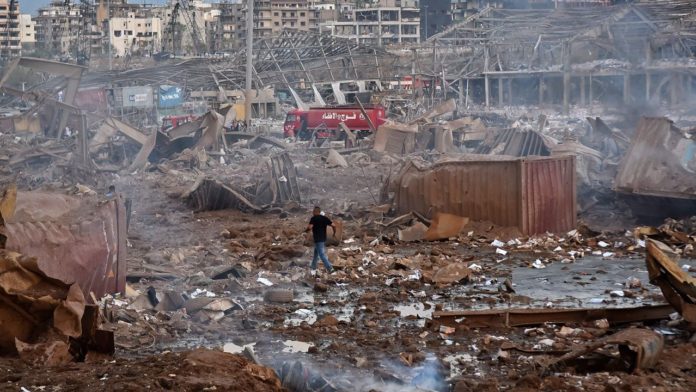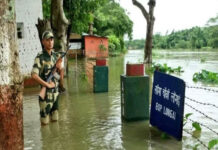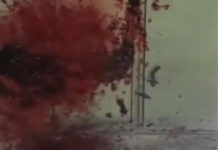At least 80 people have died and more than 4,000 were wounded after the massive explosion in central Beirut on Tuesday, Lebanon’s Health Minister Hamad Hassan said Wednesday morning. Hassan said four hospitals are out of service because of damage from the blast. He said the death toll will likely increase.
Lebanon’s Prime Minister Hassan Diab called on “friendly countries” to support a country already reeling from its worst economic crisis in decades and the coronavirus pandemic.
Close allies and traditional adversaries of Lebanon paid tribute on Tuesday to the victims of massive, deadly twin blasts in Beirut, as condolences and offers of help poured in.
UN chief Antonio Guterres expressed his “deepest condolences … following the horrific explosions in Beirut” which he said had also injured some United Nations personnel.
“This is not just ammonium nitrate,” former CIA operative says of explosion
Robert Baer, a former CIA operative with extensive experience in the Middle East, said videos of Tuesday’s blast showed that while ammonium nitrate may have been present in the warehouse, he does not believe it was responsible for the massive explosion that ensued.
Initial reports blamed the blast on a major fire at a warehouse for firecrackers near the port, according to Lebanese state news agency NNA.
Lebanon’s Prime Minister, Hassan Diab, later said that 2,750 metric tons of ammonium nitrate, a highly explosive material used in fertilizers and bombs, had been stored for six years at a port warehouse without safety measures, “endangering the safety of citizens,” according to a statement.
Baer said he thinks that there were military munitions and propellants present. He speculated it could have been a weapons cache, but it’s unclear who it belongs to.
“It was clearly a military explosive,” he said. “It was not fertilizer like ammonium nitrate. I’m quite sure of that.”
“You look at that orange ball (of fire), and it’s clearly, like I said, a military explosive.”
Baer noted that white powder seen in the videos of the incident before the major blast are likely an indicator that ammonium nitrate was present and burning. He also noticed a lot of munitions going off ahead of the larger explosion.
No evidence of an attack: Baer said while he believes the explosion does not look like solely ammonium nitrate, there’s still no evidence that this was an attack. The government has blamed poor management and vowed to get to the bottom of it.
“It almost looks like an accident,” he said. “It was incompetence, and maybe it was corruption, but the question is whether it was military explosives, who was it going to or why was it stored there?”
Baer isn’t confident we’ll ever know the truth.
“I’ve worked in Lebanon for years, and no one is going to want to admit they kept military explosives at the port. It’s a stupid thing to do.”
Investigation launched: Prime Minister Diab’s account appeared to be backed by Lebanon’s General Security chief Abbas Ibrahim, who said a “highly explosive material” had been confiscated years earlier and stored in the warehouse, just minutes’ walk from Beirut’s shopping and nightlife districts.
The Prime Minister has launched an investigation into the explosion, saying he “will not rest until we find those responsible for what happened, hold them accountable, and impose maximum punishment.”
As yet, there is no clear evidence to suggest the source of the blast.
US President Donald Trump said “it looks like a terrible attack” and that US generals had told him that the powerful explosions appeared to have been caused by a “bomb of some kind”, without offering evidence.
Secretary of State Mike Pompeo tweeted that “we are monitoring and stand ready to assist the people of Lebanon as they recover from this horrible tragedy”.
In the region, Gulf nations were among the first to react, with Qatar promising to send field hospitals to support the medical response.
Qatar’s ruler Emir Sheikh Tamim bin Hamad Al-Thani wished “a speedy recovery for the injured,” while the United Arab Emirates’ Vice President and ruler of Dubai, Sheikh Mohammed bin Rashid Al-Maktoum, tweeted “our condolences to our beloved people in Lebanon.”
Kuwait said it would also send emergency medical aid.
Egypt expressed “deep concern” at the destruction, and Arab League chief Ahmed Aboulgheit offered condolences, stressing “the importance of finding the truth about the explosions”.
And unusually, neighbouring Israel offered humanitarian aid — to a country with which it is still technically at war.
“Defence Minister Benny Gantz and Foreign Minister Gabi Ashkenazi, on behalf of the State of Israel, have offered the Lebanese government — via international intermediaries — medical and humanitarian aid, as well as immediate emergency assistance,” a statement read.
Jordan’s Foreign Minister Ayman Safadi said Amman was ready to provide any help Lebanon needed, while Iran said it was “fully prepared to render assistance in any way necessary”.
“Our thoughts and prayers are with the great and resilient people of Lebanon,” Iranian Foreign Minister Mohammad Javad Zarif tweeted. “Stay strong, Lebanon.”
Syria’s President Bashar Al-Assad wrote to Lebanese President Michel Aoun that “on behalf of the Syrian Arab people, we extend our sincere condolences to you and the Lebanese people”.
Outside the region, President Vladimir Putin said that “Russia shares the grief of the Lebanese people,” according to a Kremlin statement.
“I ask you to convey words of sympathy and support to the families and friends of the victims, as well as wishes for a speedy recovery to all affected.”
French Foreign Minister Jean-Yves Le Drian said the country was “ready to provide assistance according to the needs expressed by the Lebanese authorities”.
Britain’s Prime Minister Boris Johnson called the pictures and videos from Beirut “shocking”.
“All of my thoughts and prayers are with those caught up in this terrible incident,” he wrote on Twitter. “The UK is ready to provide support in any way we can, including to those British nationals affected.”
Canadian Prime Minister Justin Trudeau wrote on social media to say, “We think of all those who were injured in this tragic explosion, as well as those who are trying to find a friend or family member or who have lost a loved one. We’re ready to help you.”


















































